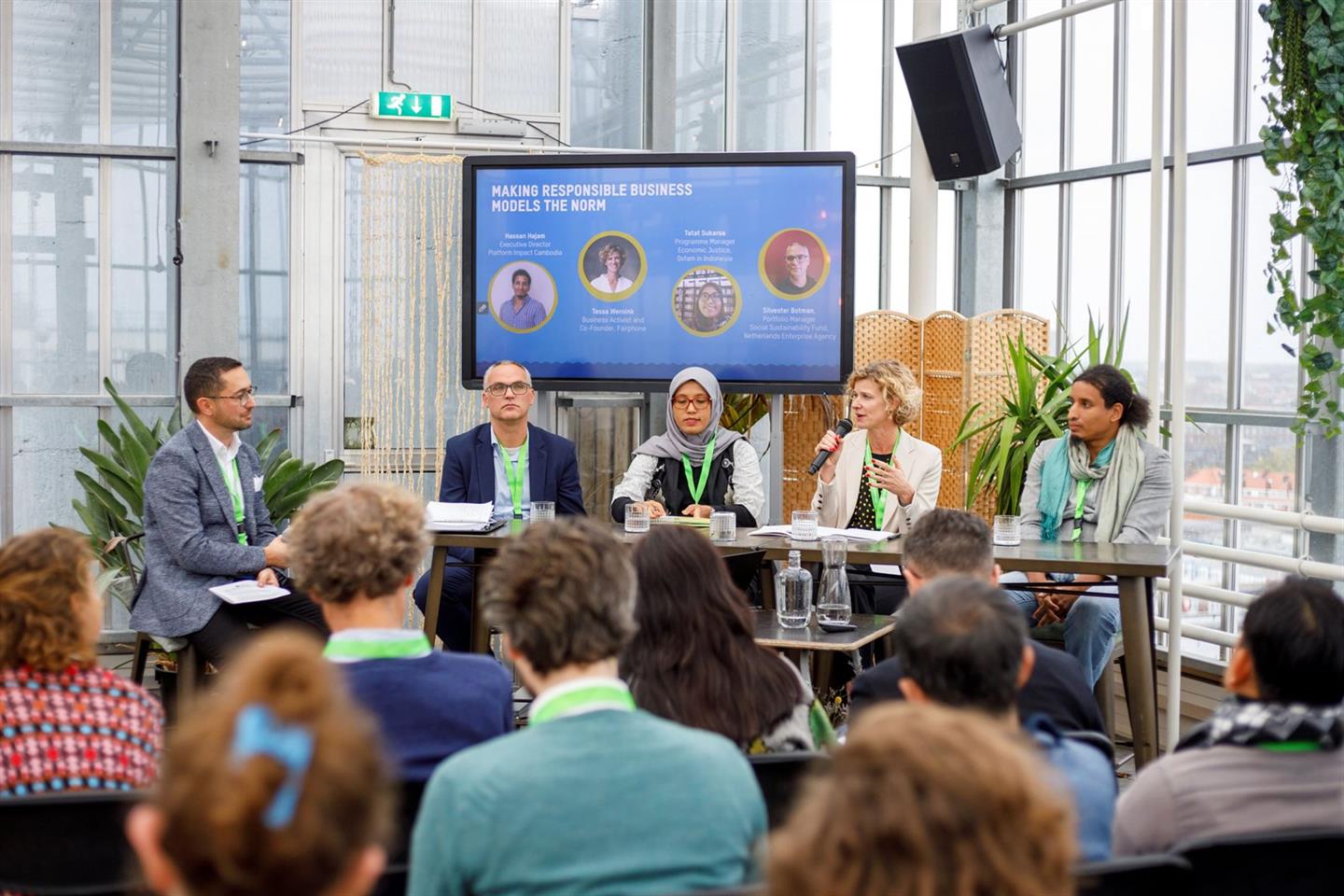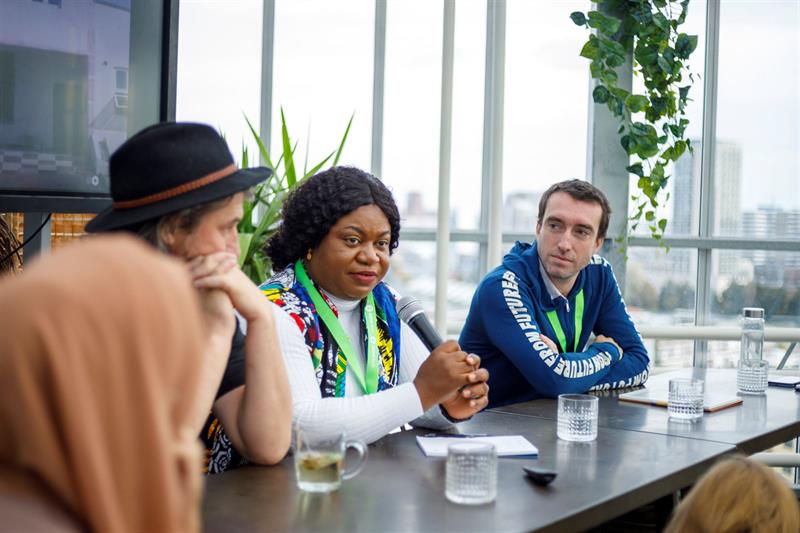Responsible Business Models for a Human Economy

By Winne van Woerden, Fiona Jarden, and Jesse Arnon
We live in an economic system that is structurally geared towards serving the interests of the wealthiest 1% at the expense of everyone else. An economy that has overshot multiple planetary boundaries, and that is fundamentally biased against women. In summary, it’s divisive and degenerative by design. A fundamentally different economy is urgently needed. Business has a key role to play in this systemic change. In support of this last point, Oxfam Novib hosted its first Responsible Business Forum (#OxfamRBF23) in The Hague in November, with dedicated participants from over 20 different countries. We focused on the role of Small & Medium Social Enterprises (SMEs) and other progressive actors toward responsible business practices. In this blog, Oxfam Novib colleagues Fiona Jarden (Senior Adviser Women's Economic Justice) and Winne van Worden (Lead Human Economy) share approaches and practical examples from the forum.
What is a responsible business model?
During the forum, we discovered that transitioning from an exploitative and extractive to a fair and regenerative private sector involves more than creating business that minimizes harm while keeping the fundaments of how business works in place. It requires committing to changing the deeper design and purpose of business.
This means going beyond typical sustainability actions like eliminating deforestation or recycling plastic, and rather extending to the active improvement of ecosystems crucial for all life. It also entails models that prioritize people before profits. Similarly, the journey from a divisive to a distributive private sector must not end at being inclusive. This would mean moving beyond a living wage for employees, towards democratizing the ownership and governance model of business.
In short, what we need is businesses that are essentially regenerative and fair by design. As Oxfam Novib, we recognize this need for alternatives to the shareholder-first business model and advocate for a transformation of our economic system and the role of business within it. Meanwhile on the short-term, we also believe that adapting the system as it is today without changing the game itself can lead to a more inclusive and sustainable world. We therefore support existing innovative models that optimize responsible business practices within the current economic paradigm while advocating for changing the game at the same time.
Changing the rules of the game
Being a social enterprise in an economy geared toward growth at all cost is not an easy job. Brave and bold impact-driven small and medium enterprises (iSMEs) attending the Responsible Business Forum proved that business models designed for the wellbeing of people and planet do “work”, even within the existing economic parameters.
Olivia Onyemaobi, the Founder and CEO of PadUp Creations in Nigeria, exemplifies a business model dedicated to addressing period poverty and promoting women's economic justice. As an Oxfam-supported iSME at #OxfamRBF23, PadUp produces reusable sanitary pads, combating a root cause of school absence for women and girls in rural poor areas. Olivia consciously tackles systemic barriers by hiring lower-income women, providing them with training, a living wage, childcare, and a formal uniform, fostering a sense of dignity and self-belief. To counter patriarchal norms hindering women's access to paid work, PadUp pays community allowances for material goods like TVs, garnering respect for female workers. Community engagement officers address norms at workers' homes. PadUp's intentional design results in punctual, trustworthy workers, contributing to the distribution of 8.9 million reusable sanitary pads in rural communities. The business serves as a practical example of an SME actively promoting women's economic justice, making a positive impact on women's lives and societies.

Change the game: entrepreneurship beyond growth
Entrepreneurs, even those committed to societal impact, often have to conform to prevailing corporate governance when registering their businesses. This alignment subjects them to the predominant extractive and divisive logic of today's private sector. This logic prioritizes channeling profits into capital gains, dividends, and bonuses for shareholders and executives, rather than directing resources towards higher wages for workers or fulfilling social and environmental goals — favoring short-term gains over long-term impact. However, a multitude of alternatives to the shareholder-centric model exists, wherein businesses are democratically owned and governed for the benefit of workers, communities, and the environment. One example of an alternative business model, on which Melanie Rieback (computer scientist and CEO of Radically Open Security) reflected in more detail during her plenary intervention, is steward-owned business. In steward-ownership, economic and voting rights are separated, with the aim for profits to serve the company's long-term purpose, rather than being distributed to shareholders. This way, steward-owned companies prioritize organizational purpose over immediate profits.
From niche to normal
Today, more than ever we need business that proactively contributes to tackling the major challenges of today. But the change we need is already happening. Fantastic social enterprises that are swimming against the tide are showing us what is possible. Taking these models to scale, from niche to normal, is essential to achieve the world we want to see – and a topic for a forthcoming blog in this responsible business model series.




